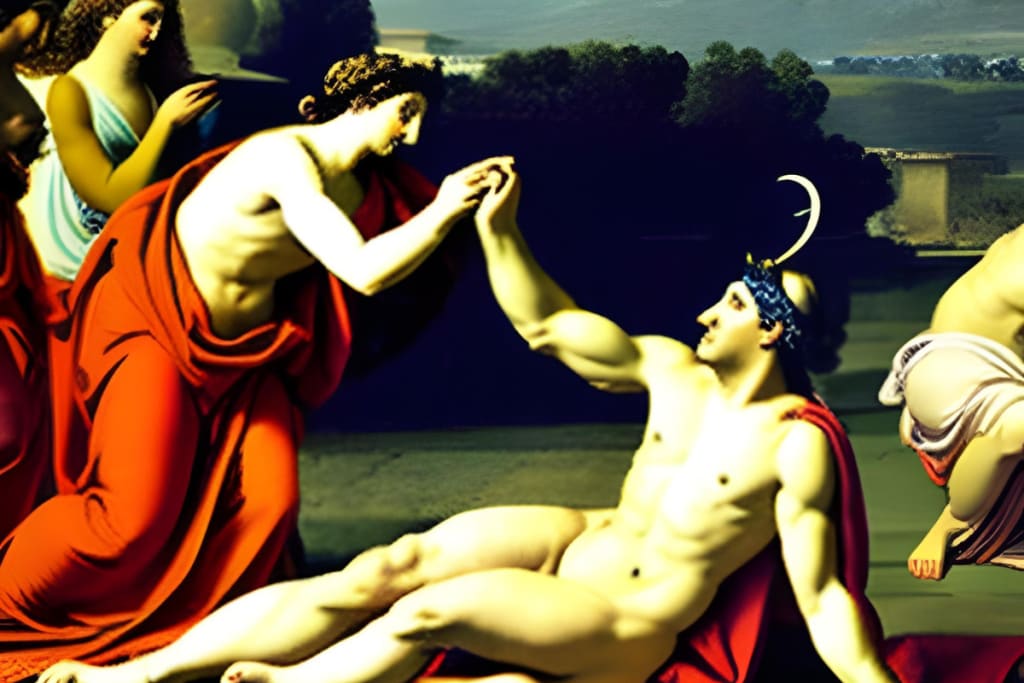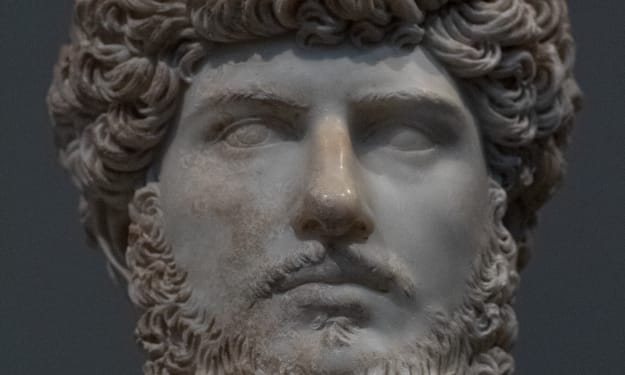10 Most Weird Ancient Greek Rituals
Unveiling the Mysteries of the Past

Ancient Greece, renowned for its contributions to art, philosophy, and democracy, also harbored a realm of peculiar rituals that have piqued the curiosity of modern-day historians and enthusiasts alike. In this comprehensive exploration, we delve into the captivating world of "10 Weird Ancient Greek Rituals," shedding light on customs that were as enigmatic as they were intriguing. Join us on this journey through time as we uncover the mystique surrounding these ancient practices.
The Mystical World of Greek Rituals
The ancient Greeks were known for their rich tapestry of rituals that played a significant role in their society. These rituals were deeply ingrained in their daily lives, and some of them may seem bizarre to us today. Let's unravel the mysteries behind these 10 weird ancient Greek rituals.
1. Hiera Orgia: The Secret Dionysian Rites
The Dionysian Mysteries were a series of secret and wild rituals dedicated to Dionysus, the god of wine and ecstasy. Participants, known as Bacchae, would engage in frenzied dancing, drinking, and revelry. These rituals were believed to bring about a state of divine ecstasy and communion with the god himself.
2. Aiora: The Ritual of Mourning
The Aiora was a unique mourning ritual where women would mimic the cries of doves to lament the dead. This eerie practice aimed to ease the transition of the deceased into the afterlife. It showcased the ancient Greeks' deep reverence for their departed loved ones.
3. Pharmakos: Scapegoating for Purification
During times of crisis, the Greeks would select a pharmakos, an outsider or a marginalized individual, to bear the community's sins and misfortunes. They would then be expelled or even sacrificed, symbolizing the purification of the society from its wrongdoings.
4. Androktones: Spartan Cryptia
In ancient Sparta, young Spartan men known as androktones were tasked with a gruesome ritual called Cryptia. They would hide in the wilderness and ruthlessly eliminate Helot slaves to instill fear and maintain control. This ritual was a stark reminder of Sparta's brutal society.
5. Omphalos: Navel of the World
Delve into the mythological origins of the Omphalos, a sacred stone believed to mark the center of the world. Pilgrims would journey to Delphi to pay their respects to this enigmatic stone, seeking divine guidance and prophecies.
6. Hybristica: The Ritual of Mockery
Hybristica was a ritual where Athenian youths would engage in playful and sometimes offensive mockery of prominent individuals during the festival of Anthesteria. This curious custom was a way of releasing societal tension through humor.
7. Pyanopsia: Bean-Throwing Festival
During the Pyanopsia festival, Athenians would throw beans and other legumes to symbolize the casting out of evil spirits. It was a lighthearted yet oddly specific way of purifying their homes and city.
8. Endoios Oikos: House of the Dead
Ancient Greeks believed that the dead continued to reside in the family home. The Endoios Oikos, or house of the dead, was a room where the deceased were laid to rest, allowing them to remain a part of their family's daily life.
9. Periskylakismos: The Chicken Ritual
To seek guidance from the gods, ancient Greeks would perform the Periskylakismos ritual. This bizarre practice involved observing the movements and behavior of chickens, believing that the gods would convey messages through their actions.
10. Diipetes: The Dove Divination
The Diipetes ritual was a form of divination where the flight patterns of doves were carefully observed and interpreted as omens. This ritual was used to make important decisions and foresee future events.
Frequently Asked Questions
Were these rituals practiced throughout ancient Greece?
Yes, these rituals were practiced in various regions of ancient Greece, but the specific customs and significance could vary from city-state to city-state.
What was the purpose behind the bizarre rituals?
These rituals served various purposes, including religious devotion, purification, mourning, and seeking divine guidance.
Were all ancient Greek rituals secretive?
No, while some rituals were secretive, others were performed publicly during festivals and events.
Did these rituals have any lasting impact on Greek culture?
Yes, these rituals played a significant role in shaping Greek culture, religion, and societal norms.
How do these rituals compare to modern customs?
Many of these rituals are quite distinct from modern customs and may seem unusual or even shocking by today's standards.
Are any of these rituals still practiced today?
Most of these rituals have faded into history, and their practices are no longer observed in contemporary Greece.
Conclusion
The ancient Greeks left behind a legacy of rituals that continue to mystify and captivate our imagination. These 10 weird ancient Greek rituals offer a glimpse into a world where tradition, superstition, and spirituality intertwined. While some of these practices may seem peculiar today, they reflect the intricate tapestry of beliefs and customs that shaped one of history's most influential civilizations.
About the Creator
Exotic History
Welcome to Exotic History, where the past comes alive with vibrant stories and intriguing narratives. We are your gateway to a world of captivating historical accounts, adventures, and forgotten tales that span the globe.
Enjoyed the story? Support the Creator.
Subscribe for free to receive all their stories in your feed. You could also pledge your support or give them a one-off tip, letting them know you appreciate their work.






Comments
There are no comments for this story
Be the first to respond and start the conversation.